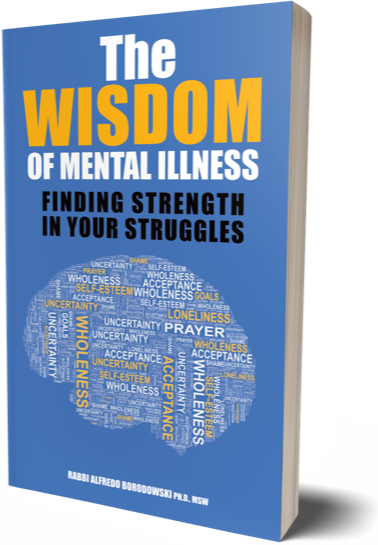Relationships aren’t always smooth sailing, and when mental illness is part of the equation, maintaining intimacy and connection can feel like navigating rough waters. But just because it’s challenging doesn’t mean it’s impossible. With empathy, patience, and the right approach, you can sustain deep connections, even when mental health struggles arise.
This guide isn’t about perfection—it’s about understanding, being present, and showing up for your partner (and yourself) with compassion. Let’s explore how to nurture intimacy and connection when mental illness is part of the journey.
The Importance of Intimacy and Connection
When mental illness touches your family or marriage, the need for intimacy and connection becomes more than just important—it’s essential. These close bonds offer much-needed support and understanding when things get tough. By nurturing this connection, you create a safe, loving space where both open communication and empathy can thrive. This emotional refuge helps lighten the weight of mental illness, making it easier to face the challenges together.
Staying connected helps prevent feelings of isolation and loneliness, something that can easily creep in when mental illness affects your family. It reassures both partners that they’re not alone in the struggle. When you feel supported and cared for, the burden becomes a little lighter, and you gain the strength to tackle difficulties side by side.
Intimacy goes beyond physical closeness—it’s about trust and emotional depth. These aspects are vital when navigating the ups and downs of mental health challenges in a marriage. By staying close and offering support, you can approach the situation with greater strength, making the journey less daunting for both of you. Together, you build resilience and create a solid foundation to weather any storm.
Navigating Love and Support Through Mental Health Challenges
When dealing with mental health challenges in a relationship, it’s important to approach the situation with care and understanding. Here’s how you can navigate love and support effectively:
1. Open Communication: Say What You Feel (Even When It’s Hard)
One of the most important foundations for intimacy is open communication. When mental illness is involved, this becomes even more critical. The thing is, mental illness can affect how someone feels about themselves, their relationships, and the world around them. It can make it hard to articulate emotions, needs, or fears, which can cause disconnect.
Create space for regular, non-judgmental conversations. Ask questions, check in, and listen—really listen. Sometimes, it’s not about offering solutions but about absorbing and acknowledging your partner’s feelings. If talking about mental health feels overwhelming, start small and build up trust. The more open and vulnerable you both can be, the stronger your connection will become.
It’s okay to admit when you don’t understand what your partner is going through. Saying, “I don’t fully get it, but I’m here to listen and support you” can mean the world.
2. Understand Triggers: Know What Sets Off the Alarm
Mental illness often comes with specific triggers—situations, environments, or even words that can exacerbate symptoms. Part of maintaining intimacy is recognizing what these triggers are and how to navigate them together.
Get curious about your partner’s triggers and ask them how you can help when they’re feeling overwhelmed. It might be stepping back to give them space, offering a grounding exercise, or simply sitting with them in silence. This understanding creates a sense of safety and shows that you’re in tune with their needs, even in difficult moments.
Don’t expect yourself to know exactly what to do all the time. Asking, “What do you need from me right now?” is a simple but powerful way to offer support.
3. Self-Care for Both Partners: You Can’t Pour from an Empty Cup
When mental illness is present in a relationship, it’s easy to focus all your energy on the person who’s struggling. However, maintaining intimacy and connection requires both partners to prioritize their own well-being.
Self-care is not selfish—it’s essential. Make sure you both have time for activities that recharge you, whether that’s alone time, hobbies, or seeking your own mental health support. By taking care of yourselves, you create a healthier relationship dynamic where you can show up fully for each other without burning out.
Consider therapy, both individually and as a couple. Having a neutral space to work through emotions and strategies can be invaluable for your mental health and your relationship.
4. Redefine Intimacy: It’s More Than Physical
Intimacy is often equated with physical closeness, but in the face of mental illness, it’s important to recognize that intimacy takes many forms. Emotional, intellectual, and even spiritual connection can be just as powerful, if not more so, than physical intimacy.
Focus on small acts of intimacy that foster connection, like holding hands, sharing meaningful conversations, or simply spending time together in comfortable silence. Intimacy doesn’t have to be grand gestures—it’s about being present, offering support, and showing love in ways that are meaningful to both of you.
Some days may not feel intimate at all—and that’s okay. There’s no need to force closeness. Take each day as it comes and find moments of connection in whatever way feels natural.
5. Practice Patience and Acceptance: It’s a Marathon, Not a Sprint
Mental illness can be unpredictable. Some days will be better than others, and there will be moments where it feels like your relationship is taking two steps forward and one step back. That’s normal.
Practice patience with yourself and your partner. Accept that mental illness is part of the journey, but it doesn’t define your relationship. Be flexible with your expectations and be polite with each other on the hard days. Intimacy and connection don’t disappear because of mental illness—they just evolve. The more you can lean into patience and acceptance, the stronger and more resilient your relationship will become.
Remind yourselves that setbacks aren’t failures. They’re just part of the process. Celebrate the small wins and stay focused on the bigger picture of growth and connection.
Final Thoughts: Love Is Stronger Than Mental Illness
Maintaining intimacy and connection when mental illness is involved is no small task, but it’s absolutely possible with understanding, patience, and a lot of love. Remember that it’s okay to ask for help, and it’s okay to have tough days. What matters most is showing up, even when things get hard, and believing that your relationship can weather the storm.
At the end of the day, love, empathy, and support are what hold relationships together. Mental illness may add a layer of complexity, but it also presents an opportunity for growth and deeper connection. With the right mindset and a commitment to each other, you can maintain a relationship that’s not only intimate but also resilient in the face of adversity.
FAQs
1. What role do friends and family play in maintaining intimacy when mental illness is involved?
Friends and family can offer crucial support by providing respite, understanding, and additional perspectives. Encourage them to participate in activities that strengthen connections and provide additional layers of support outside the immediate relationship.
2. How can couples navigate differences in coping mechanisms when dealing with mental illness?
Acknowledge and respect each other’s coping strategies, even if they differ. Discuss and find common ground where both partners can feel supported. Flexibility and open dialogue about these strategies are key to maintaining a supportive environment.
3. What are some signs that mental illness is significantly impacting the relationship?
Signs that mental illness is impacting a relationship include increased emotional distance, frequent misunderstandings, and changes in intimacy. Heightened conflict and strained communication can also indicate that mental health issues are affecting the relationship. If one partner seems to be withdrawing, it may signal deeper issues at play.












